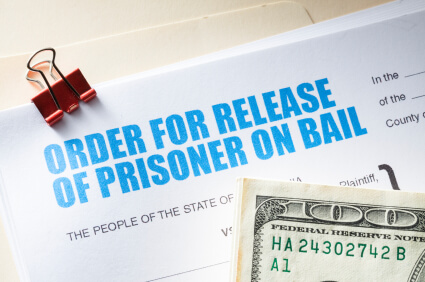How To Find A Bail Amount
Tracking down a bail amount for yourself, a friend or a family member can be difficult if you are not sure where to look. This guide will show you several possible ways to find it. Keep in mind that different counties and states have different procedures for communicating bail amounts.
When Is Bail Set?
As a rule, bail is set when a person is arrested. That bail amount stands at least until the arraignment, which is the first hearing in the case. This provides an opportunity to bail the person out of jail. In large cities, a person may have to wait several days before seeing a judge for an arraignment. However, the arrested individual still has ways to find the bail amount. For example, people who are arrested in Los Angeles are given a piece of paper with their charges, bail amount and arrest number after being arrested and booked. This allows the inmate to call a friend or family member and communicate their reference number and bail amount if they do not want to spend a few days in jail waiting to see a judge.
Ways To Find A Bail Amount
You can take the first step in two different ways. If you prefer to make phone calls, contact the jailer at the jail facility where an inmate is located. You can call several local jails if you are unsure about the facility location of the inmate. You will need to obtain the person’s inmate number or case number. Also, you can try to look up the information online. Search for the local sheriff’s department or county jail site. If they have an online tool for looking up an inmate based on last name and birthdate, you can usually find the case number this way. The bail amount may also be listed with the information. If this is the case, you can skip calling the courthouse.
Next, contact the courthouse. Again, you may be able to access the court information online instead of calling. This is helpful if you need the information when the courthouse is closed. If you prefer to call or if the courthouse does not post much information online, contact the clerk’s office. The clerk will ask for several bits of information such as the inmate’s name, birthdate, case number and several other details. If the clerk does not provide the bail information, he or she will refer you to the right department.
If your goal is to bail someone out of jail immediately, you can skip the previous steps. By contacting a bail agent instead, it is easier to find the information. The bail agent usually obtains this after asking for a few personal details about the inmate. If the individual needs an attorney or there is a family attorney on retainer, try contacting the attorney. Lawyers often set up bail arrangements and can find the bail amount quickly.
When To Wait
If the bail amount is too high for an affordable bond and the person has not been arraigned yet, you can wait until after the arraignment to post bail. The judge may reduce the bail amount during the arraignment if a bail reduction is requested. Also, an inmate can ask for a bail hearing after an arraignment to request a bail reduction.







